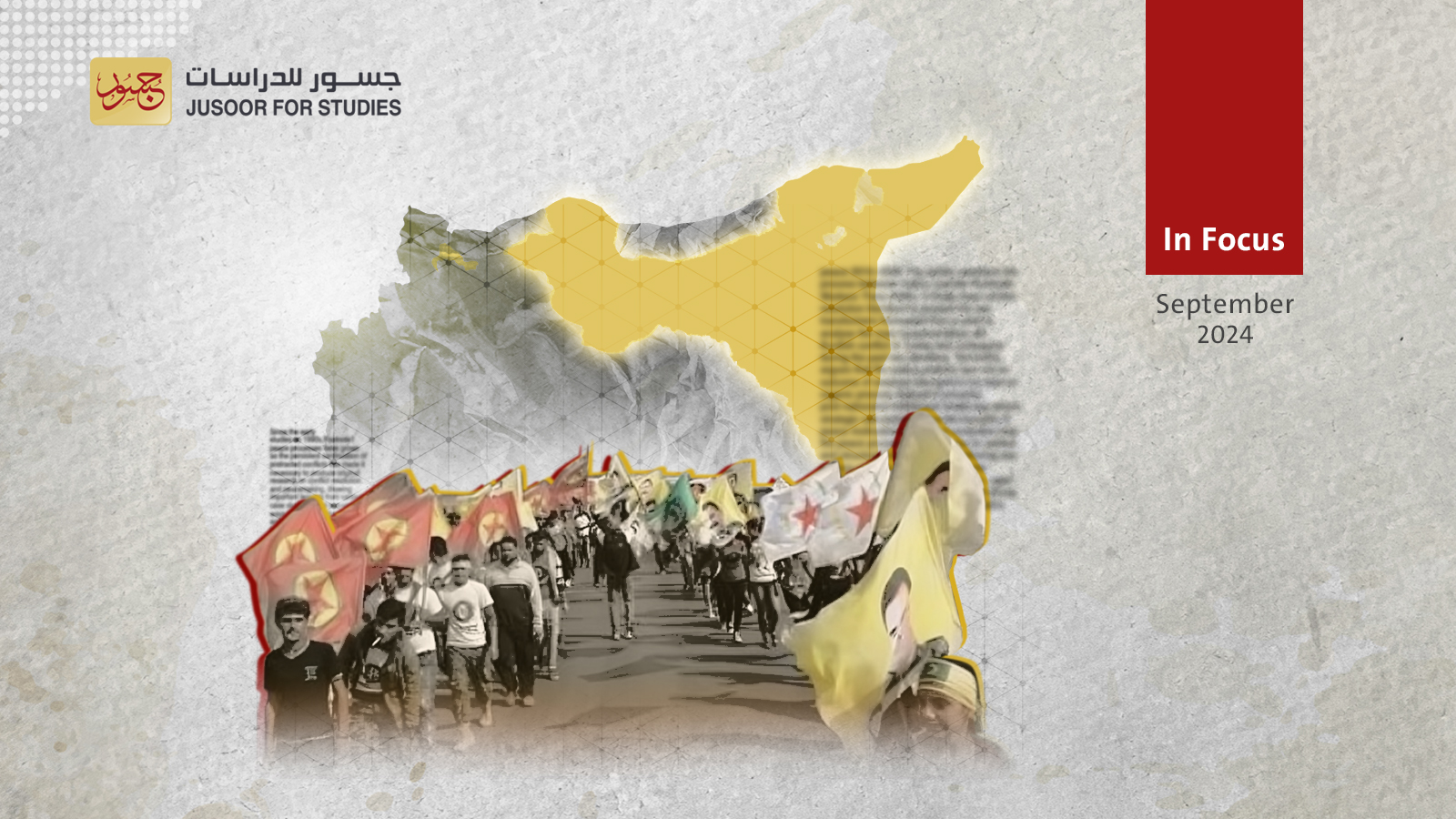PYD Conference Reflects Pressures on the Kurdish Project
On September 21, Syria’s Democratic Union Party (PYD) held its 10 th general conference, coinciding with its twenty-first anniversary—its sixth such gathering since 2011.
The PYD does not hold a periodic general congress every year. Rather, such gatherings are exceptional, and usually take place when there is a need for changes in the party’ leadership, political program, internal regulations, or positions, or when pressing internal and external circumstances demand it.
Generally, changes made at past conferences have been limited to moving chairs at the top of the party and its shared presidency, but the 10 th conference was different. The PYD made organizational changes to its General Council and edits to internal regulations and its program which reflect growing pressure on its political project.
The party upheld its association with the Kurdistan Workers’ Party (PKK), including the slogan “Together for the freedom of Commander Apo” (Abdullah Öcalan) and a final statement that renewed the PYD and its leadership’s commitment to work according to the “philosophy of the democratic nation”.
It also reaffirmed that a solution of the Kurdish issue would be a prelude to holding the “Kurdistan National Congress,” confirming that the party’s project of autonomous rule in northeastern Syria is part of the Kurdish issue and the PKK’s nationalist project, rather than part of the Syrian national question.
The conference came as the PKK finds itself under growing pressure in northern Iraq as Türkiye continues a military operation and has deployed troops widely there. It is possible that this operation may spill over into Syria, or at least isolate the PYD.
The conference also followed repeated failures by the Autonomous Administration to hold planned municipal elections, to give a sense of legitimacy to its project.
The conference was also overshadowed by the party’s continued inability to promote the Autonomous Administration to its own domestic constituency, especially in the eastern region of Deir Ezzor, where it faces opposition by some of the area’s Arab residents and the disintegration of its military and civilian councils, developments exploited by Iran and the Syrian regime to penetrate the region socially and in terms of security.
Accordingly, the conference laid out several goals, most prominently:
• Strengthening the bloc of PKK hardliners within the PYD and its leadership councils. The party selected Gharib Hasso, a Yazidi leader and long-standing PKK stalwart, and strengthened the role and presence of PKK-affiliated organizations in its leadership councils, such as the Revolutionary Youth and the Star Conference.
• Strengthening the presence of the Kurdish component at the expense of other elements in the party leadership and the Autonomous Administration. The PYD’s General Council was cut down from 145 members to 90, primarily by reducing the number of Arab and Syriac members, who are now largely limited to representing certain regions or institutions within the autonomous government.
• Keeping the autonomous administration project alive, without any change in the party’s policy towards it. The party linked the self-government project to United Nations Security Council Resolution 2254 of 2015, demanding that the administration be represented in the political process, and urgently called for rapprochement and communication with other Kurdish forces, particularly in Syria and Iraq. The party seems to be counting on intra-Kurdish negotiations to gain recognition for its project, as its efforts to win recognition from the regime continue to falter and it faces greater risks if the normalization process between the regime and Türkiye moves forward.
In general, the PYD (and behind it the PKK), are rearranging the priorities and the ranks of their leadership and the autonomous administration project in Syria in response to growing threats and pressure. As a result, the party is expected to try to revive the stalled dialogue with other Kurdish forces in Syria, especially the parties making up the National Kurdish Council.
Prior to this, the party is likely to increase the presence and ideological control of PKK-affiliated institutions, forces and figures within the autonomous administration’s territories and institutions, while further marginalizing the Arab and Syriac forces present there.








